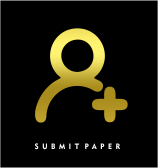Focus and Scope
Cinematology: Journal Anthology of Film and Television Studies publishes papers regularly three times a year by the Film and Television Study Program, issued by the Faculty of Art and Design Education, Universitas Pendidkan Indonesia, Bandung, Indonesia.Cinematology: Journal Anthology of Film and Television Studies provides open access to the public to read abstract and complete papers. Cinematology: Journal Anthology of Film and Television Studies, focuses on Television and Film studies. Each edition, Cinematology: Journal Anthology of Film and Television Studies receives a manuscript that focuses on the following issues with an interdisciplinary and multidisciplinary approach, which are:
Film Studies, Video Art, New Media Art, Television Studies, Communication Strategies in the Field of Television and Film, Communication Models Used in the Field of Television and Film, The Study of Media Texts in Television Program and Film, Marketing Studies on Television and Film, Management Studies on Television and Film
Section Policies
Articles
Open Access Policy
This journal provides immediate open access to its content on the principle that making research freely available to the public supports a greater global exchange of knowledge.
Publication Ethics
Cinematology: Anthology Journal of Film and Television Studies concerns fully on publication ethics of the whole publication process of the journal and all received articles. As a quality assurance of a journal, we assures professionalism of every party from the journal management, authors, editors, and reviewers by referring to the Journal Ethics adopted from Elsevier Publication Ethics and Publication Malpractice Statement, and COPE's Best Practice Guidelines for Journal Editors, as follow:
Duties of Editors
Editors evaluate submitted manuscripts exclusively based on their academic merit (importance, originality, study’s validity, clarity) and its relevance to the journal’s scope. The Editor-in-Chief has full authority over the entire editorial content of the journal and the timing of publication of that content. Editors and editorial staff will keep the confidentiality of the article. All submitted articles considered for publication undergo peer-review by at least two reviewers who are experts in the field.
Duties of Reviewers
- Peer review assists editors in making editorial decisions and, through editorial communications with authors, may assist authors in improving their articles. Only qualified referees will be invited to review an article. Any article received for review is a confidential document and will be treated as such; it will not be shown to or discussed with others except if authorized by the Editor-in-Chief. Reviews would be conducted objectively, and observations formulated clearly with supporting arguments so that authors can use them for improving the article. Reviewers will identify relevant published work that has not been cited by the authors and will also notify the editors of any substantial similarity or overlap between the article and any other article (published or unpublished).
- Any invited referee who has conflicts of interest resulting from competitive, collaborative, or other relationships or connections with any of the authors, companies, or institutions connected to the manuscript and the work described will be immediately replaced with a more fair referee.
- Unpublished material disclosed in a submitted article will not be used in a reviewer’s research without the express written consent of the authors. Information or ideas obtained through peer review will be kept confidential and not used for the reviewer’s advantage.
Duties of Authors
- Authors of original research should present an accurate account of the work performed and the results, followed by an objective discussion of the significance of the work. Authors should ensure that they have written and submit only entirely original works, and if they have used the work and/or words of others, that this has been appropriately cited. Publications that have been influential in determining the nature of the work reported in the article should also be cited. Papers describing essentially the same research should not be published in more than one journal or primary publication. Hence, authors should not submit for consideration a manuscript that has already been published in another journal.
- Only persons who are considered to have significant contributions should be listed as authors in the article. All persons who indirectly made substantial contributions to the work reported in the article must not be listed as an author but should be acknowledged in the "Acknowledgements" section. Authors should ensure that they have properly acknowledged the work of others by citing publications that supported the nature of the work.
- When authors discover significant errors or inaccuracies in their published work, they should promptly notify the journal’s editors or publishers and cooperate with them to either correct the paper in the form of an erratum or to retract the paper. If the editors or publisher learns from a third party that a published work contains a significant error or inaccuracy, then the authors should promptly correct or retract the paper or provide evidence to the journal editors of the correctness of the article.
- Authors who publish with this journal agree to retain copyright and grant the journal right of first publication with the work simultaneously licensed under a Creative Commons Attribution-ShareAlike 4.0 International License. Authors can enter into separate, additional contractual arrangements for the non-exclusive distribution of the journal's published version of the work (e.g., post it to an institutional repository or publish it in a book), with an acknowledgment of its initial publication in this journal. Authors should sign a copyright transfer agreement when they have approved the final proofs sent by Cinematology: Journal Anthology of Film and Television Studiesprior the publication
- Reviewers/editors are competent in the scope of Public Relations science. As the evidence of papers and their competence, reviewer/ editor candidates will provide a link or URL address of scientific sites, such as Google Scholar/ResearchGate/Orcid/Scopus, and so forth.
Duties of the Publisher
- The publisher, together with the editors, take reasonable steps to identify and prevent the publication of papers where research misconduct has occurred, and under no circumstances encourage such misconduct or knowingly allow such misconduct to take place.
- Each article is accepted and published here; its grammar and sentences are checked with Grammarly® application and are recommended to use Reference Manager application Mendeley.
- This journal utilizes the Indonesia One Search (IOS), and Indonesian Publication Index (IPI) system to create a distributed archiving system among participating libraries. It permits those libraries to create permanent archives of the journal for purposes of preservation and restoration.
Authors Ethics
1) Reporting; the author must provide information about the process and results of his research to the editor in an honest, clear, and comprehensive manner, and keep the research data well and safe.
2) Originality and plagiarism; the author must ensure that the script that has been sent/submitted to the editor is the original text, written by him/herself, sourced from his ideas and thinking, and not plagiarizing the writing or ideas of others. The author is strictly forbidden to rename the reference sources quoted into the names of others.
3) Repetition of submission; the author must inform that the script submitted to the editor is a text that has never been sent/submitted to the publisher of another journal/publication. If there is a "redundancy" of sending the script to another publisher, the editor will reject the submission.
4) Author status; the author must inform the editor that the author has competence or qualifications in the field of expertise that is by the field of publication, namely librarianship. The author who submits the script to the editor is the first author (co-author) so that if a problem is found in the process of publishing the script, it can immediately proceed.
5) Error writing script; the author must immediately inform the editor if errors are found in the writing of the script, both the results of the review and the revision. Writing errors include the names, affiliations/agencies, citations, and other writings that can reduce the meaning and substance of the text. If that happens, the author must propose an amendment immediately.
6) Disclosure of conflicts of interest; The author must understand the ethics of scientific publications above to avoid conflicts of interest with other parties so that the script can be processed facile and safely.
Editors Ethics
1) Publication decision; The editor must ensure a thorough, transparent, objective, fair, and wise process of reviewing the script, and this is the basis of the editor in making decisions on a text, rejected, or accepted. In this case, the editorial board acts as the script selection team.
2) publication information; The editor must ensure that the guidelines for writing the script for the author and other interested parties can be accessed clearly, both print and electronic versions.
3) Distribution of peer-reviewed manuscripts; The editor must ensure the reviewer and script material for the review, as well as inform the provisions and review process of the text clearly to the reviewer.
4) Objectivity and neutrality; The editor must be objective, neutral, and honest in editing the manuscript, regardless of gender, the business side, ethnicity, religion, race, class, and citizenship of the author.
5) Confidentiality; The editor must maintain every piece of information correctly, especially about the privacy of the author and the distribution of the script.
6) Disclosure of conflicts of interest; The editor must understand the ethics of scientific publications above to avoid conflicts of interest with other parties so that the script can be processed facile and safely.
Reviewers Ethics
1) Objectivity and neutrality; reviewers, must be honest, objective, unbiased, independent, and only side with scientific truth. The process of reviewing the script is done professionally without distinguishing gender, the business side, ethnicity, religion, race, class, and citizenship of the author.
2) Clarity of reference sources; reviewers must ensure that the source of references/citations of the script is appropriate and credible (accountable). If errors or irregularities are found in writing the source of the reference/quotation, reviewers must immediately inform the editor to be corrected by the author according to the reviewer's records.
3) Effectiveness of peer-review; reviewers must respond to the script that has been sent by the editor and work according to the specified peer-review time (maximum two weeks). If you need additional time to review the text, you should immediately confirm it to the editorial secretariat.
4) Disclosure of conflicts of interest; reviewers must understand the ethics of scientific publications above to avoid conflicts of interest with other parties so that the script can be processed facile and safely.
Journal Manager Ethics
1) Decision making; The journal manager / editorial board must describe the mission and objectives of the organization, especially those relating to the determination of policy and journal publishing decisions without any specific interests.
2) Freedom; The journal manager must give freedom to reviewers and editors to create a comfortable working atmosphere and respect the privacy of the author.
3) Guarantees and promotions; Journal managers must guarantee and protect intellectual property rights (copyrights), and be transparent in managing funds received by third parties. Also, journal managers must publish and promote the results of publications to the public by providing benefits in the use of texts.
4) Disclosure of conflicts of interest; Journal managers must understand the ethics of scientific publications above to avoid conflicts of interest with other parties so that the script can be processed facile and safely.
Archiving
This journal utilizes the LOCKSS system to create a distributed archiving system among participating libraries and permits those libraries to create permanent archives of the journal for purposes of preservation and restoration. More...






















